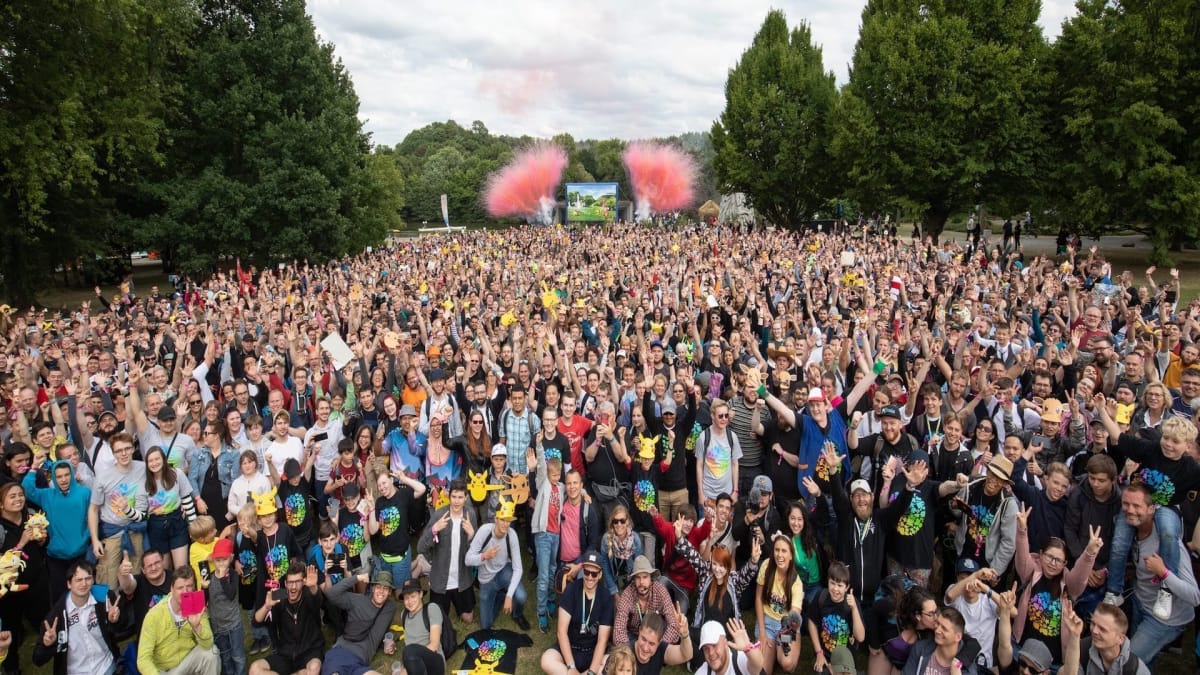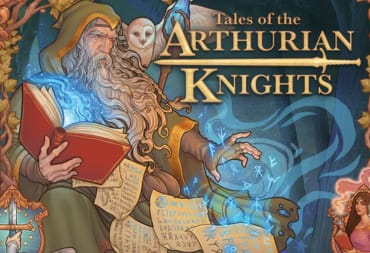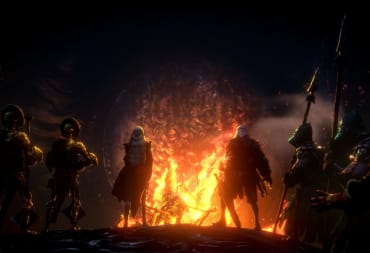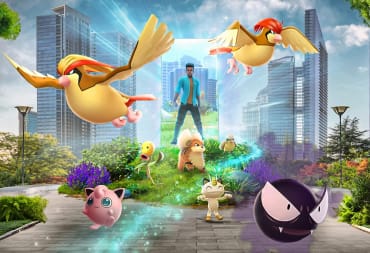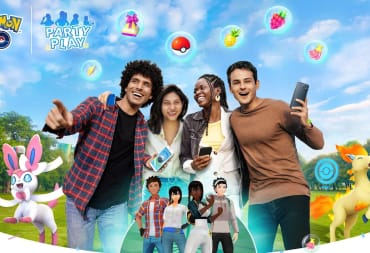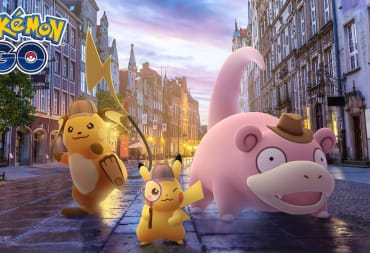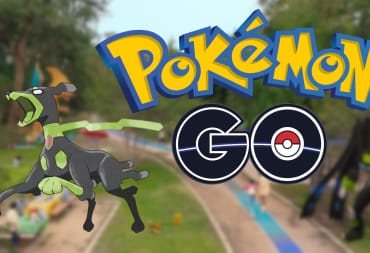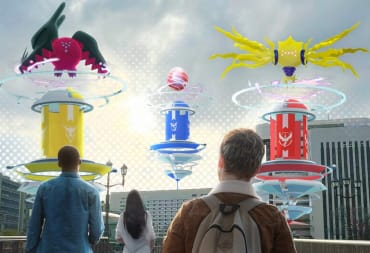With stores closed, public places shuttered, and most of the world in general lockdown, video games have emerged as one of the few pre-pandemic activities to remain somewhat social, now that little stands in the way of firing up a console and playing online with friends. However, Pokemon GO, which kicked off a modern revival of “Pokemania” when it launched in 2016, has a uniquely difficult challenge ahead of it. While most games are doing quite well now that people are forced to stay indoors and on their couches, Pokemon GO was designed to require players to engage in a shortlist of things most health officials would frown upon in the midst of a global pandemic: exploring the outdoors, entering public spaces, and gathering in groups to successfully play the game.
One-hundred sixty-four million people played Pokemon GO in 2016. The game skyrocketed to popularity with its novel mix of AR technology and creature collecting. Simplified mechanics that discarded the rock/paper/scissors battle system in favor of throwing virtual Poke Balls at Pokemon using your phone’s camera, along with its encouragement of group play and community exploration, cemented its long-term popularity. In 2019, the number of active Pokemon GO players reached 486 million. Now, Niantic has had to implement rapid changes to keep its active community catching Pokemon together without actually having to be together.
In Vancouver, Canada the local Pokemon GO community has had to brace for the inevitable changes to the way they can safely play the game.
“It was disappointing for many people as it brought an immediate termination to regular get-togethers,” said Sacha Zav, a community administrator for the Metro Vancouver Pokemon GO Discord group. “Normally once a month players would head to their favorite parks for an event called Community Day; now we observe Community Day from our couches.”
Community Days are once-a-month events that feature rare Pokemon and unique challenges. The global event frequently fills Vancouver’s Creekside Park that surrounds the iconic Science World building with hundreds of Pokemon GO players, and is an important day for the community to come together and connect with each other in person. Being unable to play as a group, many players have also been unable to play on their own.
“Back then, at least 10 people would show up to raid a legendary Pokémon. Nowadays, it will often be just barely enough to win,” said Luke Yin, a four-year veteran player based in Vancouver. Raids are a type of smaller group event that encourage players to join together to take down stronger opponents. Often groups will stick together and travel from raid to raid.
“Used to be, people would hop in my car to go to the next area, or you would carpool,” said Jason Siemens, a player from the Vancouver Pokemon GO Facebook group. “Now, it’s more a procession of vehicles.”
“At the beginning of the year, I personally was afraid to play the game because my immune system is questionable,” said Zav. “Anyone with similar anxiety potentially also took a break.”
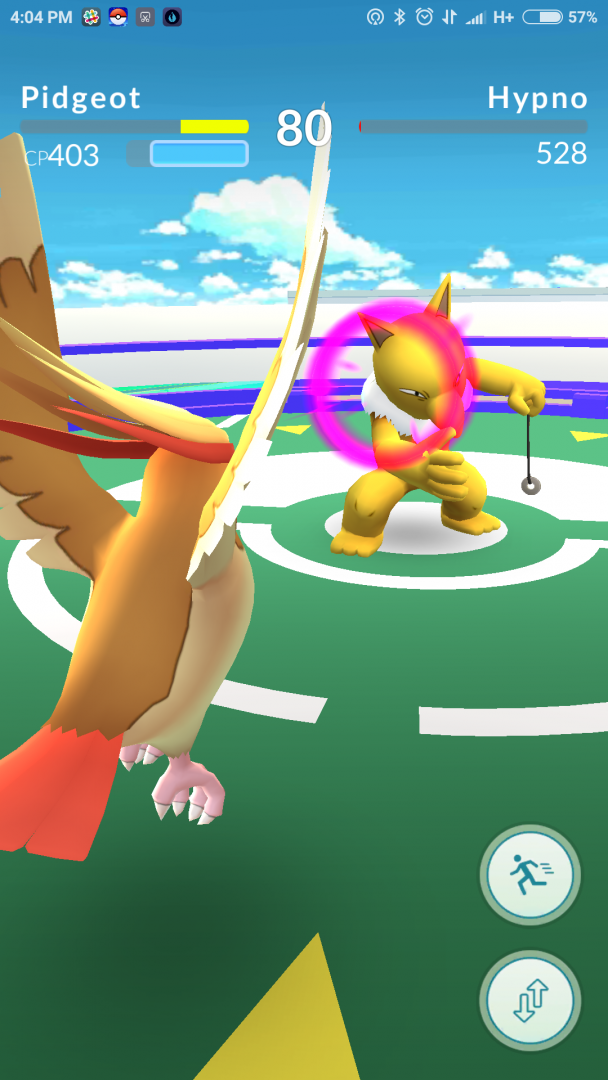
Vancouver isn't the only city where the Pokemon GO community has had to improvise, and Niantic knows this. Worldwide, they've taken actions to bring local communities together. Those actions started with a variety of gameplay tweaks and feature additions that accomodate solo activities. To keep raiding viable, Niantic launched remote raid passes, which extend the range players can engage in raids.
“The launch of remote raid passes has been a huge hit right out of the gate,” said Matthew Slemon, senior product manager at Niantic during a press briefing. “The distance trainers can interact with gyms and PokeStops has been increased as well, so if you’re taking a solo or socially distanced walk, you can participate and cooperate in activities safely.”
On top of this, Niantic also allows players to now keep more inventory gifts and removed the walking requirements necessary for trainers to participate in the GO Battle League, the game’s competitive battle mode.
“I hope remote raids stay,” said Andrew Nielsen, a player from Langley, British Columbia. “I think they’re doing a good job. I’m lucky I live beside a park with three PokeStops, but my girlfriend lives in a more remote area, and the things Niantic has done lately have helped her a ton.”
But Niantic isn’t the only one making changes to the way players interact with Pokemon GO. The Silph Road is a player-led PvP organization that runs a tournament and leadership tool called the Silph Road Arena. Communities can host tournaments, which means many people gathering in one place for hours.
“PvP is a huge aspect of the game for some players,” said Zav. “The Silph Road responded to the pandemic by banning in-person tournaments, requiring all communities to coordinate remote battles between their participants. I feel most people appreciate these changes, but some certainly lament the loss of hanging out as a group.”
And for many, hanging out as a group is what makes Pokemon GO special and different from other games that let you play with others remotely. In the interest of keeping that community engagement intact, Niantic isn’t ruling out the possibility of keeping some of the changes around after the quarantine ends.
“I think there’s a balance we’re trying to make sure we strike,” explained Slemon. “We definitely don’t want Pokemon GO to lose a lot of that core magic. It is an outdoor game that encourages you to go to places of interest around you and meet up with others. We’ve talked about remote raid passes being a permanent addition to the game, though it’s something that we might throttle back to make sure that it’s not the primary way that people engage with raids.”
Ultimately, though Niantic’s swift response has been met positively, the community itself is the strongest force in many areas keeping players attached to the game.
“I noticed people in my group chat offering to give people masks and reminding people about distancing and whatnot, so I think it’s been positive,” said Nielsen.
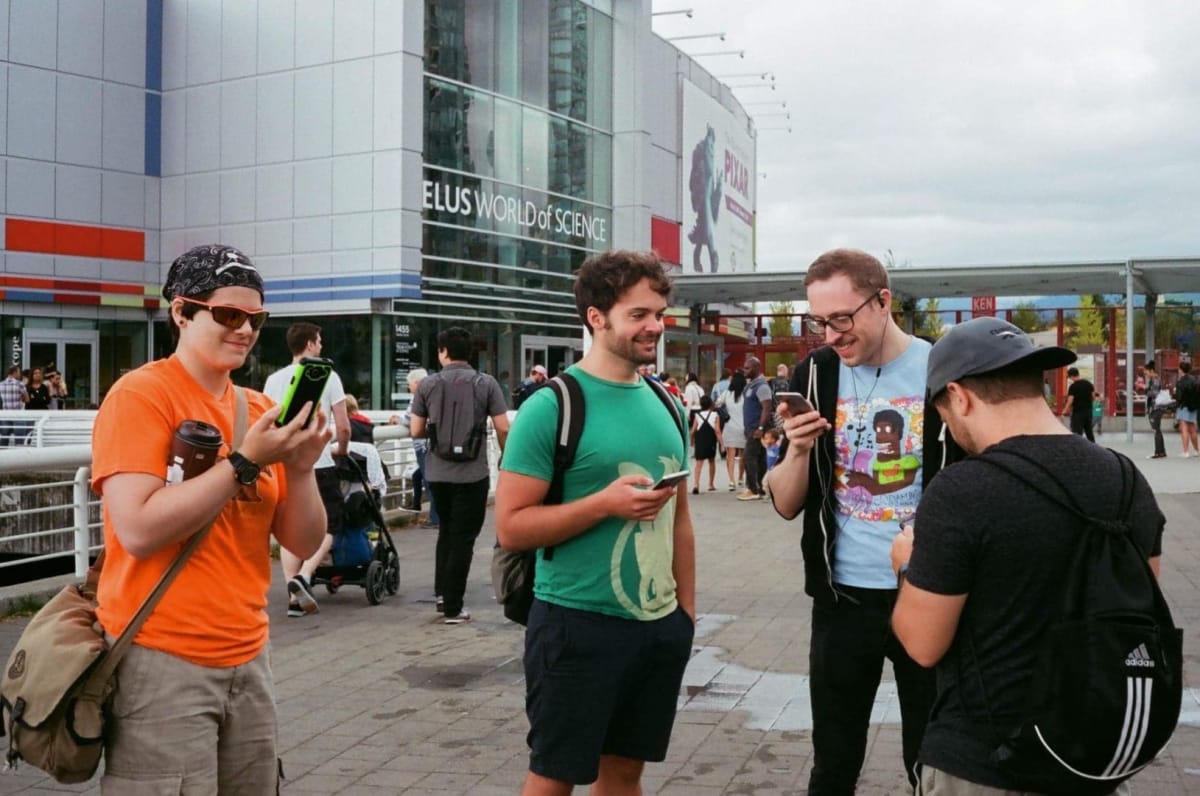
Zav, whose role in the community has her frequently leading groups of Pokemon GO players all over the city chasing raids, has seen the community’s strength consolidate online via Discord.
“People like me return to their default introversions and feel perfectly at ease with not being surrounded by people,” she said. “but there's so much to be gained by meeting new people face-to-face and enjoying hobbies or pursuing goals together. I don't think we'll really notice the full effect the pandemic has had until we can return to the casual in-person meetings that sometimes featured crazy dashes from one end of Olympic Village to the other, or the systematic marches from point-of-interest to point-of-interest between Coal Harbour, Gastown and Yaletown.
“It'll be a great reunion when that happens for sure.”
Have a tip, or want to point out something we missed? Leave a Comment or e-mail us at tips@techraptor.net
